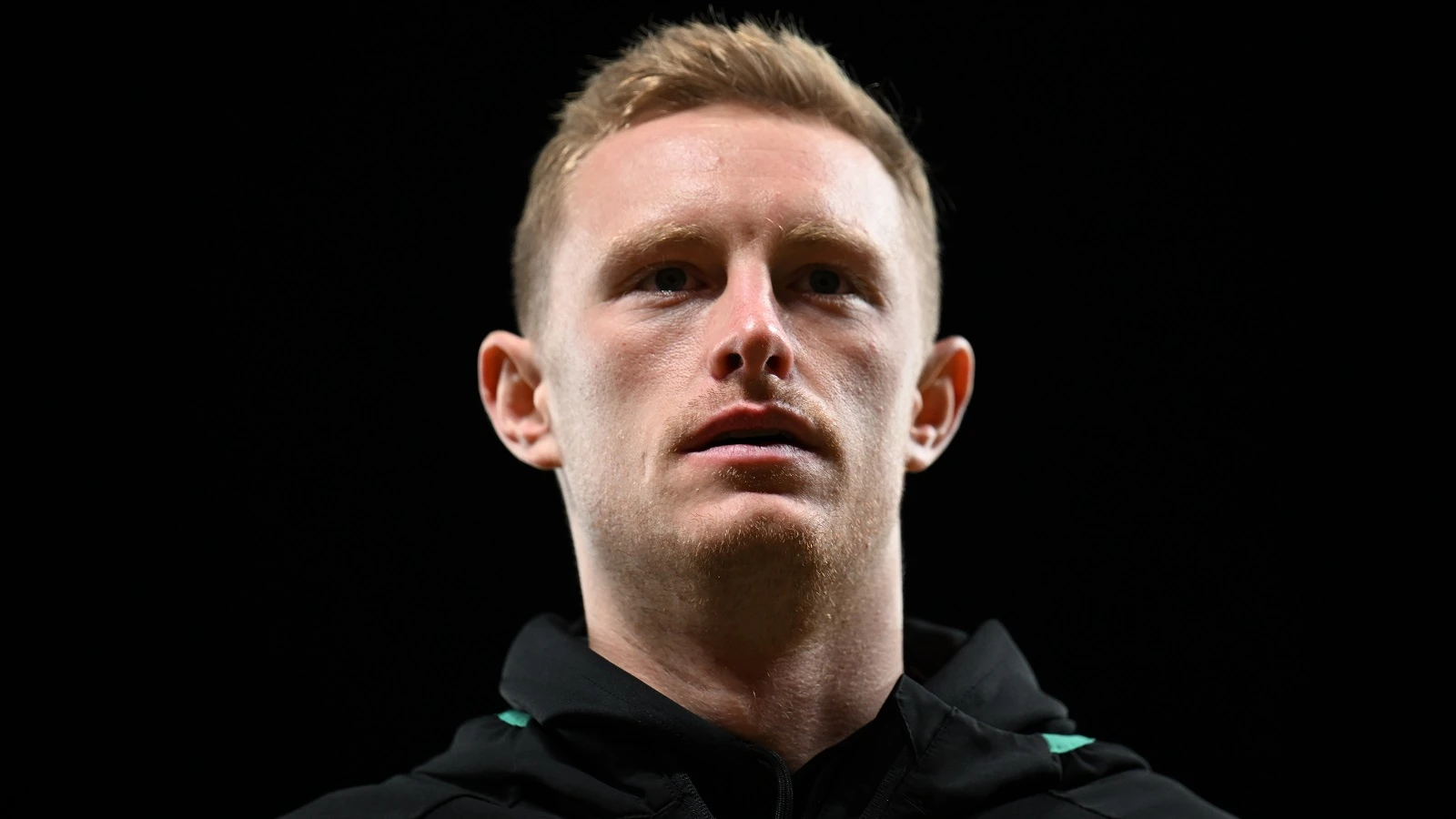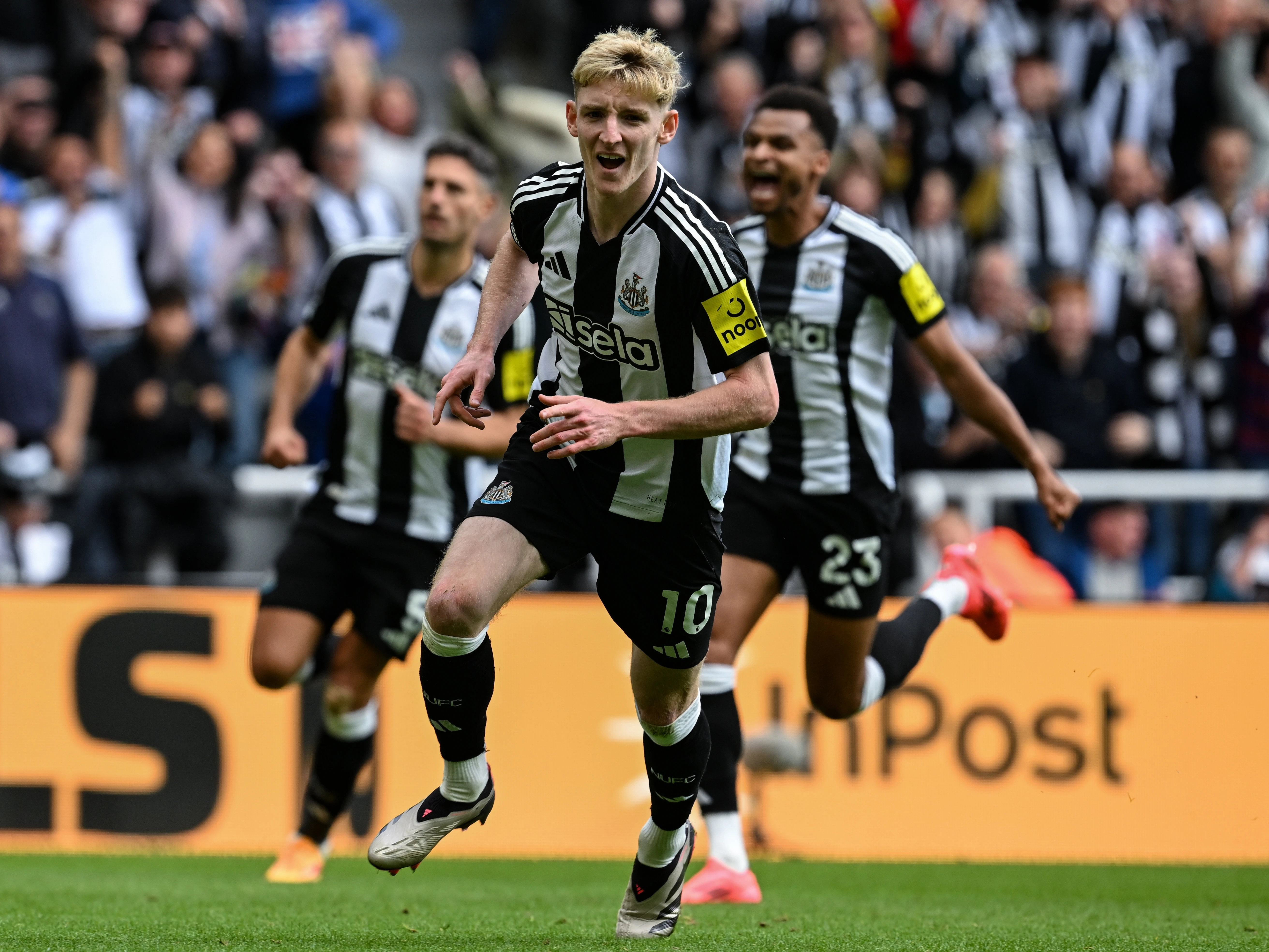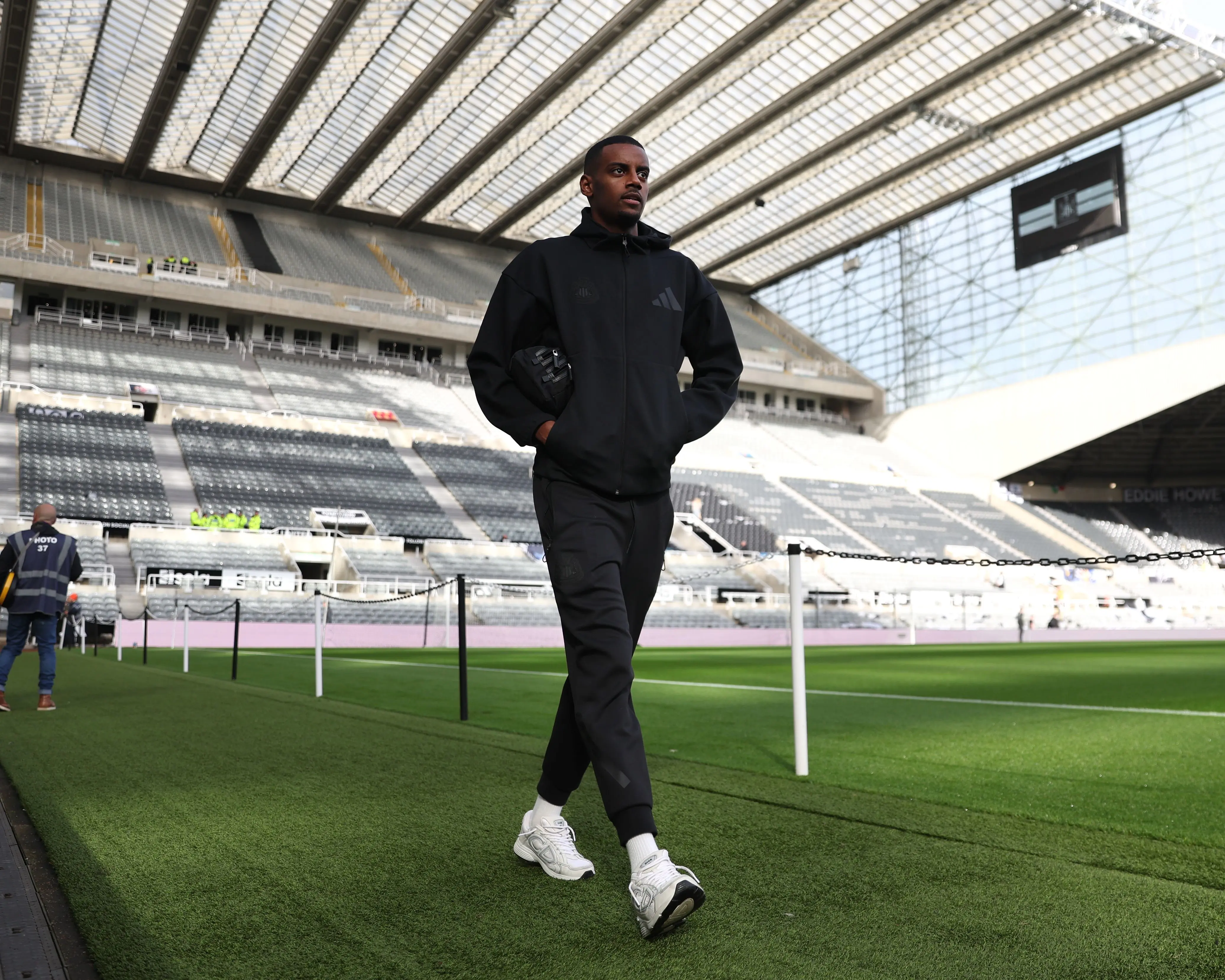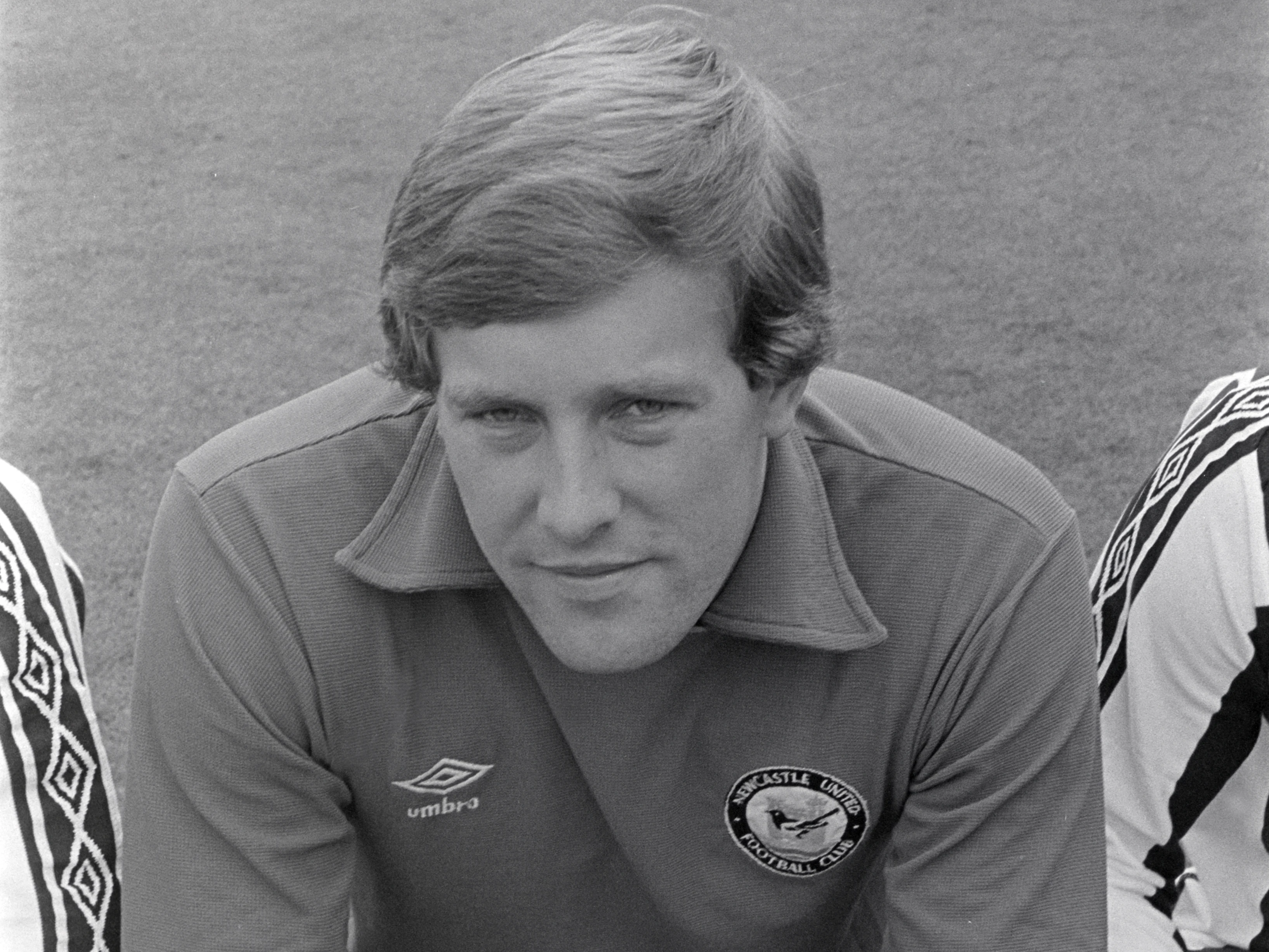The dam burst around a year ago and Sean Longstaff is searching for the words to explain. He has never been prone to tears but after breakfast in Tynemouth with his father, David, and brother, Matty, it just happened. "I keep a lot of things bottled up. I'm quite quiet in that way. Whether that's emotions…" he pauses. "I don't really like speaking to people about stuff, for whatever reason. I suppose everyone's different.
"It probably comes to a point for everyone when things can spill over, and eventually that did. But that needed to happen. I look back now, and that needed to happen, or else I would have just kept going in the spiral I was going. Nothing would have changed and, ultimately, there comes a point when you have to change, stuff has to start changing.
"We went for breakfast in Tynemouth and at the table we were speaking. I'd played the day before, but I hadn't been great. We spoke, but I couldn't eat my breakfast. I could feel myself welling up at the table. I can't remember what we were speaking about. It was just speaking. Eventually we left.
"I got upstairs in my house and spoke to my dad for ten minutes. I burst out crying. I was in a pretty bad way."
He is now comfortable talking about that day. It was a marked depth for a young man who was thrust, uneasily, into a new life two-and-a-half years ago when he became Newcastle United's newest hope. With a nudge from a teammate, that morning in 2020 led him to seek help from a psychologist. He takes a sip from his water bottle. "My dad was there for us at that time. Sometimes you just need a big hug," he smiles. "It was probably the day which turned everything around for me.
"I'd say I'm always quite stubborn. But I knew that day when I spoke to my dad and Matty, it stripped everything back. They're the most honest people. It was just us in the room. My brother left and I spoke to my dad for ten minutes. That was as close to rock bottom as I've been.
"It was that day, actually, that Matt Ritchie – out of the blue – sent us a message and said, 'do this – you need to speak to him (the psychologist)'. I was able to build from that. It's just built, built, built over time. Little building blocks. Getting back in the squad for a game, getting back in the team – it's all been little building blocks."
Longstaff repeats similar mantras during an hour's conversation where he speaks of building blocks, of progress, but bleakness too. He has always been sincere but it still does not feel natural for him to bare himself in this way or display such vulnerability. He says he was able to recognise the point at which he needed help, but knows not everyone can do the same. "It's the mental health point, isn't it?" he says. "I was always someone who thought, 'nah, I'll be fine, it won’t affect me'. But it does. You're in a pressurised situation, playing professional football, in the Premier League. You've got all the eyes on you, and you're getting judged off so many people, all the time.
"As a sportsperson, as a player, you never think you need help. You think you need to do everything yourself. But sometimes you can't. There are certain things you do need. I think I've spoken to you about it before, but I've always been someone who looks at what other sportsmen are doing and if the top sportsmen are doing it, then it's good enough for me as well.
"That was probably the best thing I've ever done. It's helped me mentally be in a much, much better place. I'm really happy with where I am now.
"To be honest, I never really look back and think, 'I'm proud of myself for doing this or that', but in a way, I am proud of how far I've been able to come in a year. I think if I can come this far in a year, then I can keep pushing and get to wherever that may be."
Longstaff celebrates after opening the scoring at Watford in September
The changes are tangible. Longstaff believes he is no longer affected by talk or speculation, whereas once "it was in my mind", he explains, tapping his temple. He would become frustrated, sometimes at trivial matters, or feel like relatively insignificant things could derail him. The frustration, he says, "made me a prick to be around". He will keep working with the psychologist until his time in the game is up. "I remember at the time thinking, 'hmm, I'm not sure'. But I sort of believed in it and thought, 'what have you got to lose? You're already pretty much at rock bottom', to be honest."
Something seems to have switched in his game too. He is 23 now and in recent weeks has begun to exert a bit of influence in midfield, the kind that became expected of him after his debut season in 2018/19. "I think I've been playing pretty well – probably sort of how I remember playing, which is a good thing. It's the best I’ve felt going into a season for a canny few years." Summer sessions with strength and conditioning coach James Allan helped. What does 'how I remember playing' mean? "I feel freer. Even the way I receive the ball, the way I move, it's a fluid motion. The last couple of years, I've felt when I've played it's looked a bit mechanical in a way. It's not all fluid and smooth. But this year, I feel that way, which is really nice."
The residual clunkiness may be a legacy of the posterior cruciate ligament injury he suffered in March 2019, which he is now loathe to talk about. He feels he got "caught up" discussing its impact, dwelling on the moment which ended an assured eight-game spell in the season of his life. He says that getting through a game without pain is no longer a concern as it once was. There is freedom in that.
Longstaff's 20-yarder in the draw at Watford last month was his first goal in over a year, the "monkey off my back". Those who watched Longstaff progress through the Magpies' youth teams will have recognised that strike at Vicarage Road – it feels like he has scored the same goal time and time again. He scored some like it for Kilmarnock and Blackpool too. One touch, out of his feet, bang. "When I went on loan, I scored quite a few long-range goals. I always back myself to be able to hit the target," he nods. "I think I've got good enough technique to do it maybe eight times out of ten. It's something I'm still working on, especially with Jonesy (Graeme Jones). He's on us every day about shooting with meaning."
That natural sense of adventure was suppressed in his breakthrough year. He sat deeper alongside Isaac Hayden, who had more license to run forward. The fact he emerged as an orthodox central midfielder surprised those who had seen Longstaff excel as a probing, incisive number ten for the club's under-21s. Now he is part of a trio where the demands are different again. Does he feel like some people are still figuring out what kind of player he really is?
"I suppose so," he shrugs. "Ultimately there's not much I can really say about what people think is my best or worst position. The thing with our team is, and we’re getting better at it, but we're probably going to have less of the ball than the opposition. Sometimes it's not as easy to be going forward all the time. You've got to show different aspects to your game. I think this year especially I've been able to get around the pitch a lot more, making more tackles and interceptions and stuff. It's another string to your bow.”
Longstaff in action during the 2-1 win over Manchester City in January 2019 - a game in which he won the decisive penalty
This year is unlike the many preceding it in the sense that his younger brother, Matty, is not with him. He is on loan at Aberdeen for the duration of the campaign and so, for the first time in their lives, they are separated by a fair distance. It has taken some getting used to, "but in a way it's probably something we both needed," says Longstaff. "As brothers, people start to think of the two of you as one instead of your own individuals, which we both didn’t like to be honest. We're brothers, but we're totally different people in some respects, and I think that's probably what some people maybe don't understand. Just because we're brothers doesn't mean you have to speak to us together – do you know what I mean? We're two separate footballers at the end of the day.
"We're both going to have to carve our own paths out in life and football. There's nothing better than playing with your brother, don't get us wrong – I'd rather he was here, and I was playing with him than not. But sometimes he needs to go away and find his way, and we both need to create our own reputations and pathways. Hopefully one day they'll come back together, and we'll play together. If not, it's football. We're still brothers. But it's something that maybe needed to happen.”
That sounds like it is about finding an identity. Longstaff nods. "And if you ask Matty the same question, he'll have the same answer. Matty wants to be known as Matty Longstaff not, like, one of the Longstaff brothers. I'm exactly the same."
He is becoming more secure in his own company. Before this interview began, Longstaff changed alone in the dressing room at Benton, the last player left in the building some two hours after the end of training. He will spend that time working in the gym with Allan or fellow strength and conditioning coach Nick Grantham, or speaking to head of sports science Callum Walsh about running stats. It is a more mature approach, he says, than going home to play on his Xbox and sleep.
Ritchie still texts him. Sometimes it is an appraisal of his performance. Longstaff used to just say 'thanks', but now he replies in kind. It feels like growth and Ritchie’s initial intervention last year helped spark it. "I'll always be forever grateful to him in that way. That allowed us to start building slowly. I think if you look at where I was then to where I am now, I'd say in terms of my mindset and me as a person, I'm a totally different person – a more positive person, I would say.
"I'll always remember the dark times just as much as the positive times that are going to come. I know how good I can be, and ultimately, I'll get to where I deserve to be. Everything is a building block and there's going to be ups and downs. But I've hopefully overcome the dark times. Everything is on an upward trajectory, which I'm really excited about."
Longstaff with his younger brother after Matty's memorable winner against Manchester United in October 2019
There is a degree of uncertainty about the next chapter of Longstaff's career. He is one of the few who got to play for their hometown club, score for their team, realise a lifelong ambition at breakneck speed. He has already done all that.
How do you move on from the dream? He takes a moment to think. "You come through, all that's great, and you live that dream a bit. But then when things didn't go how I wanted them to go, you see how quick people from the outside can turn, and that gives you a completely different perspective on it," he offers. "So now, you forget about everything else, and just focus on playing as many games as you can, playing week-in, week-out, playing as well as you can. What happens will happen.
"I think as you get older, you can look back with fond memories. I look back on playing with my brother with fond memories, but it's all in the past now. Football and sport move so quick and to be honest, sport's a lot like: 'what have you done for us lately?' That's exactly what my dad would always say. That's what sport is.
"Sometimes you get caught in the, 'I'm local, I'm whatever, I came through, did this, it's going to last forever’, but if you don't perform it gets taken away like that." He clicks his fingers. "That's the perspective I've got now. All I'm focused on is just playing and just being ready for the opportunity. Sport can leave you behind pretty quickly, and that probably nearly happened to me in a way. But I have a much clearer mindset now, a clearer view on how the game works, how football works. It's only good for me."
We have done many interviews over the years, going back to his academy days, but this one feels different. Longstaff feels different, freer, unburdened. He agrees. "As every year goes by, and every time I sit and speak to you, I think I'm quite open about things. I just feel a lot more comfortable in my own skin in terms of being able to deal with things – and being able to deal with them in the right way," he says. "Whether it's people being nice about you, or people being not so nice about you, you have to be able to deal with it. I do that a lot better than I used to, which is great.
"It allows me to be much more comfortable in my own skin – to look in the mirror and have no regrets. To look in the mirror and be at ease, and be happy, with the person that I am."




